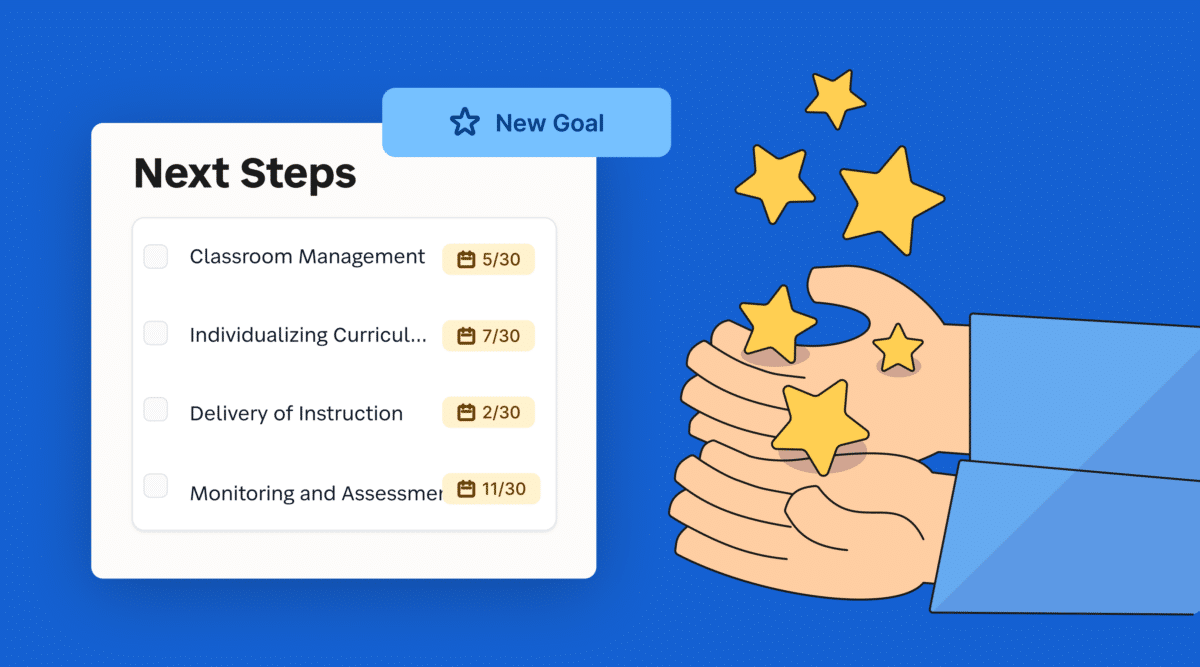

The professional growth of teachers stands as a cornerstone for student success, and as district leaders, you’re constantly seeking ways to enhance our educators’ skills and adaptability. One powerful strategy that’s gaining traction is the implementation of consistent, robust coaching models. Let’s explore why these models are crucial and how they can transform your district’s approach to teacher development.
The Current State of Teacher Professional Development

Data from a recent SchoolStatus survey of educators and administrators paints a compelling picture of the challenges facing educator growth:
- Only 37% of educators feel they have all the information necessary to effectively address individual student needs.
- 31% of educators cite a lack of training on how to use data tools effectively as a major obstacle to their work.
- 46% of educators believe more time for professional development would be beneficial.
These statistics highlight a clear need for more structured, consistent approaches to teacher support and development.
Why Consistency Matters in Coaching Models
Consistency in coaching isn’t just about regularity; it’s about creating a reliable, supportive environment where teachers can truly flourish. Here’s why it’s so crucial:
- Building Trust: Regular, predictable coaching interactions help build trust between coaches and teachers, creating a safe space for vulnerability and growth.
- Reinforcing Learning: Consistent coaching allows for the reinforcement of new skills and strategies over time, increasing the likelihood of lasting change in teaching practices.
- Adapting to Individual Needs: A consistent model provides the flexibility to adapt to each teacher’s unique developmental journey while maintaining a structured approach.
- Aligning with District Goals: Regular coaching sessions ensure that individual teacher growth aligns with broader district objectives and standards.
Key Components of an Effective Coaching Model
To harness the power of consistency, consider these essential elements when designing or refining your district’s coaching model:
1. Structured Feedback Loops
Implement a system for regular, constructive feedback. This should include:
- Specific, actionable insights tied to observable behaviors
- A balance of affirming strengths and identifying areas for growth
- Opportunities for teacher self-reflection and input
2. Intentional Scheduling
Create a scheduling framework that prioritizes coaching:
- Regular, protected time slots for coaching sessions
- A mix of formal observations and informal check-ins
- Flexibility to accommodate both proactive and reactive coaching needs

3. Goal-Oriented Approach
Center the coaching process around clear, measurable goals:
- Collaborate with teachers to set SMART goals aligned with district objectives
- Regularly review and adjust goals based on progress and changing needs
- Celebrate milestones and achievements to maintain motivation
4. Data-Informed Practices
Leverage data to guide coaching efforts:
- Train coaches and teachers on effective use of data tools
- Use multiple data points to inform coaching conversations and goal-setting
- Track coaching impact through teacher growth metrics and student outcomes
Overcoming Implementation Challenges
While the benefits of consistent coaching are clear, implementation can face hurdles. Here are strategies to address common challenges:
- Time Constraints: Prioritize coaching by integrating it into the school day and leveraging technology for efficient scheduling and communication.
- Resistance to Change: Foster a growth mindset culture by showcasing early wins and peer success stories in a team-wide weekly update.
- Coach Capacity: Invest in “coach-the-coach” programs and consider peer coaching models to expand support capacity.
- Maintaining Momentum: Use a mix of individual and group coaching sessions to keep engagement high and share best practices across your teacher community.
The Ripple Effect of Consistent Coaching
When implemented effectively, a robust coaching model creates positive ripples throughout the educational ecosystem:
- Enhanced Teaching Practices: Regular coaching helps teachers refine their instructional strategies and classroom management skills.
- Increased Teacher Confidence: Consistent support builds teachers’ self-efficacy and job satisfaction.
- Improved Student Achievement: As teachers grow, their ability to positively impact student learning increases.
- Stronger School Culture: A culture of continuous improvement fosters innovation and collaboration among staff.
Empowering Educators Through Consistent Coaching
In an era where educational challenges are constantly evolving, implementing a consistent coaching model isn’t just beneficial—it’s essential. By prioritizing regular, structured support for our teachers, we create an environment where continuous growth is the norm, not the exception.
As district leaders, your investment in robust coaching models pays dividends in teacher satisfaction, student achievement, and overall school performance. It’s time to move beyond sporadic professional development sessions and embrace the power of consistency in our approach to teacher growth.Are you ready to transform your district’s approach to teacher development? Consider exploring comprehensive platforms like SchoolStatus Boost, which offer the tools and frameworks needed to establish and maintain effective coaching programs. By leveraging such resources, you can address the gaps in current professional development practices and create a thriving ecosystem of growth and learning in your schools.
Stay Connected
News, articles, and tips for meeting your district’s goals—delivered to your inbox.





